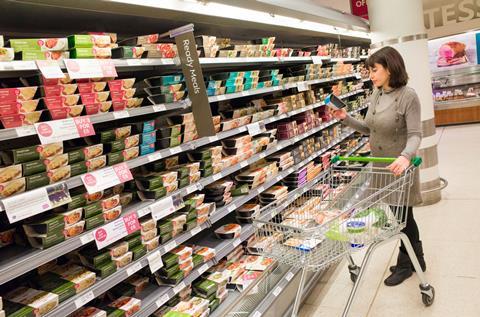Alicia Edmund from the Evangelical Alliance reminds us of the importance of the female vote, and why it is necessary to have the correct ID this year.

One week on from the prime minister announcing a snap general election for Thursday 4 July, party leaders, activists and MPs have taken to the streets to mobilise support and win votes. Women will play an important role in this election because they tend to predominately fall into two categories, ’undecided’ or ’floating’ voters.
But before we learn what a ’Waitrose woman’ voter is and its significance, I must ask you as a fellow sister in Christ, are you registered to vote? If not, you have until Tuesday 18 June (23:59) to register to vote and be eligible to vote in this election.
If you are registered to vote it’s important to be aware that many are not and so you can play a role in supporting others to register. Another controversy surrounding this election is that for the first time voters in England, Scotland and Wales will be required to have an approved identification to vote.
An Electoral Commission survey in February 2022, found that 4% (equivalent of around 1.9 million people) of those able to vote did not have the appropriate photo ID.
An Electoral Commission survey in February 2022, found that 4% (equivalent of around 1.9 million people) of those able to vote did not have the appropriate photo ID. Further research also showed this law change will disproportionately affect those unemployed, disabled, from minority groups or between the ages of 18 – 25. If you do not have the approved list, you can apply for a “Voter Authority Certificate” from your local Electoral Registration Office for free. The deadline is Wednesday 26 June (17:00).
I have heard of church leaders taking the initiative and hosting ‘register to vote’ stalls at the beginning and end of Sunday services to give individuals access who would otherwise be digitally excluded from registering. Could you and your church do the same?
‘Waitrose woman’ is a phrase coined by No 10 strategists at the time the Partygate scandal was unravelling and undermining (again) then prime minister Boris Johnson’s reign in May 2023.
‘Waitrose woman’ is a phrase coined by No 10 strategists at the time the Partygate scandal was unravelling and undermining (again) then prime minister Boris Johnson’s reign in May 2023.
There was a strong belief that to keep Boris in power, the government needed to appeal to the ’Waitrose woman’. She is typically described as a middle-class female voter, living in the home-counties, socially liberal yet “small c” conservative when it comes to family and treasured institutions like the BBC Radio 4 and the National Trust. Her policy preferences are low taxes and most likely voted remain but swiftly moved on.
Fast forward two years and the ‘Waitrose woman’ has outlived Mr. Johnson and become a target voting group for both Labour and the Liberal Democrats. I foresee women across the UK and from different demographic groups playing a significant role in this election to determine the next prime minister.
In the 2019 election there was a female split with 44% voting Conservative and 35% Labour (YouGov, Dec 2019). This marginal gap motivates the Labour party with aspirations to govern and the Liberal Democrat party able to make significant gains in Conservative held seats. As women it is important to know this and use the appeal to ask candidates and scrutinise policies through a biblical lens.
On 23 May 2024, my colleagues at the Evangelical Alliance published Thinking Faithfully About Politics report where it surveyed over 1300 evangelicals in the UK to understand their attitudes to politics and political engagement. We found a high percentage are certain or likely to vote in the next general election and that 58% of respondents state the main factor that determines which party they vote for is one they believe will best help those most in need.
Read more on politics
Standing up for faith in politics
Is there space for faith in politics?
Christians don’t have to avoid politics but here’s three things to help you debate in a Godly way
Prior to the election being called, I and the Evangelical Alliance team met with parliamentarians and senior advisors across the political spectrum to state evangelicals do not vote uniformly and care about a breadth of issues.
As Christians and especially as women let’s make candidates work for our vote. We should not gift political parties our vote without scrutinising policies. To help, we have launched a general election focus podcast with other Christian charities and organisation leaders.
As Christ-followers, we are to steward our civic duties with the same attentiveness and care as we would to loving God and our neighbour. In the same way, let your light shine before others, so that they may see your good works and give glory to your Father who is in heaven” (Matthew 5:16, ESV).


































No comments yet